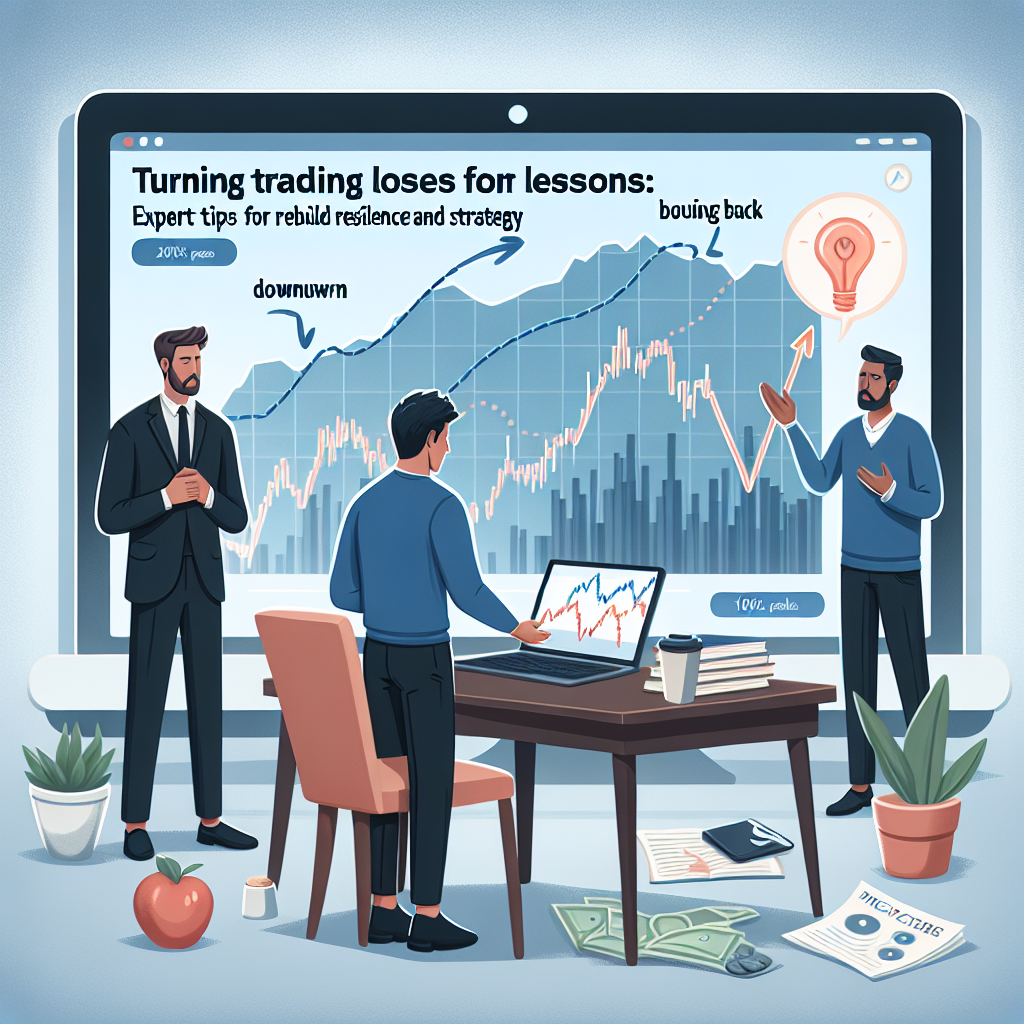**What is Your Advice to People Who Got Burned by Losses?**
In the world of trading, losses are inevitable, especially for newcomers seeking quick wins or engaging in emotional decision-making. However, a significant loss often leaves many traders — regardless of their level of expertise — questioning their abilities and, in some cases, considering quitting altogether. The key challenge is not whether you will face losses, but how you respond to them.
For this piece, we drew inspiration from an insightful podcast featuring Udo Depic, a trading expert and the visionary behind Skypex Trading Academy. Udo’s perspective on bouncing back from trading losses highlights powerful lessons in risk management, personal discipline, and emotional resilience. Below, we break down the critical takeaways for traders who are looking to recover both financially and mentally from losses.
### 1. **Learn the Lesson Before Moving Forward**
“Learn from your lesson,” Udo emphasized in the podcast, declaring it the most vital step after experiencing a loss. Losses in trading are, at their very core, educational opportunities. Every mistake — whether it’s overleveraging, failing to adhere to stop losses, or investing emotionally — holds value if used as a teacher. But failing to learn from these experiences will only compound the issue.
Consider losses as feedback rather than failure. Take time to evaluate:
– What fundamental mistakes were made?
– Was there an emotional trigger for your decisions?
– Did you fail to conduct sufficient research or stick to a trading strategy?
Analyzing your losses without letting the emotional sting cloud your judgment is paramount.
### 2. **Separate Your Trading Capital from Your Living Expenses**
One common error many traders make is trading with money they cannot afford to lose. As Udo aptly put it, “If you have $10,000 in savings, don’t trade the entire amount — maybe use $500.” By trading only with surplus funds, you not only reduce financial stress but also improve your ability to make rational trading decisions.
The pressure of trading to cover rent or other essential expenses is a recipe for impulsive, high-risk decisions. Instead, maintain a primary source of income to support your daily needs. Trading should, at least in its initial stages, fuel your “luxuries” or long-term wealth aspirations — not your survival.
### 3. **Stick to a Structured Risk Management Plan**
Risk management is the cornerstone of resilient trading. One of Udo’s most powerful insights was his personal story of losing all his capital in a single leveraged trade when starting out. Reflecting on that experience, he advised traders to:
– Never allocate 100% of their trading capital to one trade. Limit risk to 5–10% per trade.
– Use stop-loss tools effectively to avoid catastrophic financial hits.
– Trade with calmness and avoid chasing the emotional high of big wins.
By adopting these rules, risks remain controlled, and traders can bounce back even after losses. Remember, it’s better to miss a potential win than to gamble away everything you have.
### 4. **Develop Emotional Discipline and Mental Resilience**
Trading is just as much about mental strength as it is about technical knowledge. The stress and fear brought on by losses can lead even experienced traders to overtrade or abandon their strategies entirely.
To tackle this, Udo suggests adopting a mindset focused on “tranquility” and patience. For example:
– Don’t react impulsively to market fluctuations.
– Take a break if you feel emotionally overwhelmed.
– Remember that no trader, not even the most seasoned, can make consistent returns every month.
Visualization exercises, journaling trading patterns, and learning from peers through a supportive community are additional ways to fortify mental discipline.
### 5. **Start Small and Stay Consistent**
If trading losses burn you out entirely, restarting smaller and slower can help rebuild your confidence and skills. Udo advised aspiring traders to work with manageable sums initially, saying, “If you’re stressed, trade with just 5% of your capital. Be easy.”
Additionally, Udo underscored the value of demo accounts in regaining confidence without financial risk. Practicing consistently in simulated conditions allows you to experiment with strategies and regain emotional stability after a loss.
### 6. **Embrace a Long-Term Perspective**
Trading success is a marathon, not a sprint. Those who approach trading with the mindset of building sustainable, generational wealth understand that losses are small hurdles in a bigger picture. Udo highlighted that “investment is always long-term,” and traders should avoid quick-rich schemes or unrealistic expectations like earning 20–30% every month.
By setting attainable annual goals (e.g., achieving a 10% portfolio growth rate), traders can recalibrate their expectations and mitigate the psychological pressure of getting-rich-quick.
### 7. **Lean on Community for Support**
Finally, participating in a trading community like the one offered by Skypex can be invaluable. Being part of a group allows traders to share stories, learn from others’ mistakes, and maintain accountability. It’s common for lone traders to spiral into poor decision-making, but having a support system can offer both guidance and inspiration.
### Concluding Thoughts
For traders who have been burned by losses, quitting might seem like the easiest course of action. However, those who embrace setbacks as stepping stones toward success can rebuild stronger trading skills and financial stability. As Udo Depic aptly concluded, “Trading is an opportunity for everyone to make their own money. You just need to trade with money you can afford to lose and learn as you go.”
The world of trading rewards patience, discipline, and a willingness to learn. By taking losses in stride, refining strategies, and maintaining realistic goals, traders can chart a path toward long-term success.

